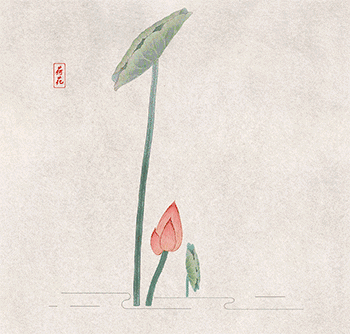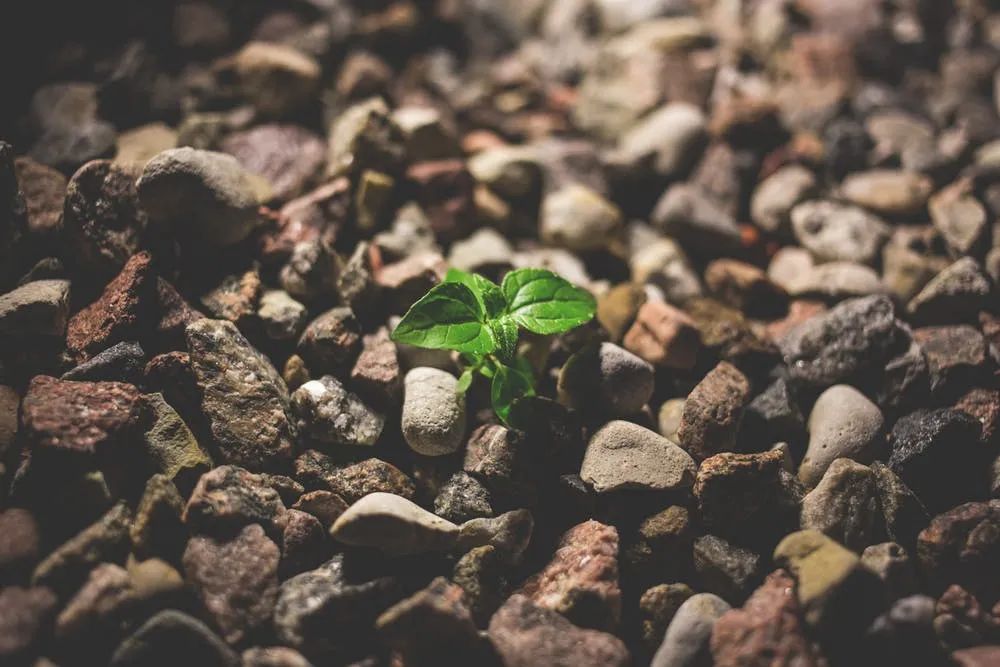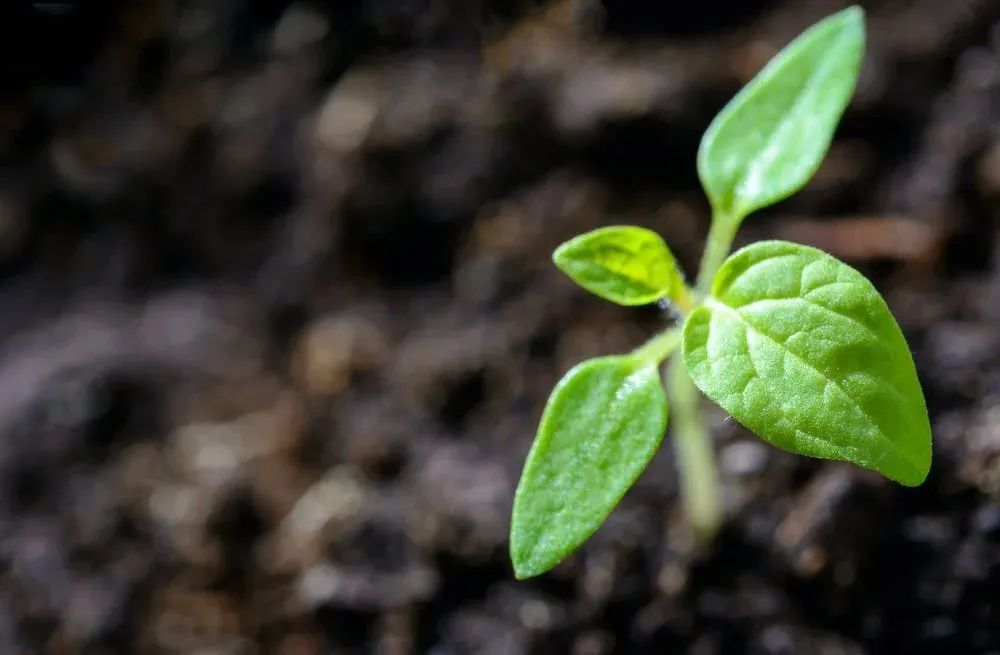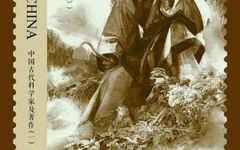
A historical coincidence or mistake often leaves behind irreparable errors, untraceable truths, or perplexing enigmas for future generations…

To practice medicine or to be an official? That is the question.
Those familiar with Traditional Chinese Medicine (TCM) or Chinese history should know about the book “Bencao Gangmu” and its author, Li Shizhen. The lost herb we discuss today has a subtle connection to Li Shizhen’s “Bencao Gangmu,” so our story begins with him… On the 26th day of the fifth lunar month in the 13th year of the Ming Zhengde era, under a clear sky with no unusual phenomena such as “a white deer entering the room, purple mushrooms growing in the courtyard”, the atmosphere in the home of Dr. Li Yanwen in Qizhou Town, Qichun County, Hubei, was filled with joy. His wife, Zhang, had given birth to a son, bringing new hope to the Li family. Facing his son, Li Yanwen placed great expectations on him, entrusting a long-buried dream to the young boy… Li Yanwen’s father, who was also Li Shizhen’s grandfather, was a traveling doctor, akin to today’s barefoot doctors, working hard for little pay and holding a low social status. Having learned medicine from his father, Li Yanwen witnessed the struggles and wanted to change his family’s fate through education. Unfortunately, he only became a xiucai (a degree holder) and could not pass the imperial examinations, so he inherited his father’s profession and continued practicing medicine. His status as a xiucai, combined with his excellent medical skills, greatly improved his living conditions, earning him respect among local elites and a good reputation among the common people, but he still regretted not becoming an official. The birth of his son rekindled his hopes of realizing that dream, so he did not intend to pass on his medical skills to his son, believing that studying medicine was too arduous and that becoming an official was the proper path. Young Li Shizhen was sent to a private school early on to study the Four Books and Five Classics and to practice writing essays. Historical records state that Li Shizhen “was frail in childhood and grew up with a dull mind”, but he was exceptionally diligent, achieving success in examinations. In the 10th year of the Jiajing era, at the age of fourteen, Li Shizhen passed the county and provincial examinations and was recommended by the governor of Qizhou, Zhou Xun, to take the imperial examination in Huangzhou, where he successfully became a xiucai, gaining admission to the Confucian academy. However, it is unclear whether it was due to the misfortune of the Li family or a lack of official career, but Li Shizhen failed the next three examinations and was unable to pursue an official career. After each failure, he fell seriously ill, facing life and death. Perhaps it was fate; the Li family had a deep connection with TCM. Each failure and illness diminished Li Shizhen’s hope for an official career while igniting his interest in the medical arts. After failing the imperial examination for the third time in the 19th year of Jiajing, he resolved not to pursue an official career, instead following his family’s tradition and dedicating himself to studying medicine, expressing his determination in poetry: “My body is like a boat against the current, my heart is as hard as iron and stone; I hope my father’s aspirations for me will be fulfilled, and I fear no difficulties until death!” Without the pressure of the imperial examinations and the goal of becoming an official, Li Shizhen was finally free to explore various texts, including the Three Canons and Five Classics, and the Hundred Schools of Thought… He read whatever interested him, broadening his knowledge and deepening his understanding of medicine. In the 24th year of Jiajing, a severe drought struck Qizhou, leading to crop failures, followed by floods and rampant epidemics. Under these calamities, the clinic run by the Li family became a hub of activity. Li Shizhen assisted his father in saving many patients on the brink of death, and out of compassion for the suffering villagers, he charged no fees and even provided herbs from his own supplies, earning the gratitude and admiration of the surrounding communities. This experience made Li Shizhen realize the true value of being a doctor who could help the world. The following year, as if to reward this father-son duo, Li Yanwen was recognized and appointed as a student of the Imperial Academy, fulfilling a long-held dream of his own. At this point, another dream began to take shape for Li Shizhen…
Generations of Scholars: Three Generations of Authorship
Throughout his long clinical practice, Li Shizhen became aware of many errors in the compilation of herbal texts, stating: “The number of items is cumbersome, and the names are numerous and mixed. Some items are divided into two or three, while others are confused as one.” Particularly, many toxic herbs were mistakenly believed to “prolong life with long-term use”, leading to endless harm. For example, Huang Jing (Rhizoma Polygonati) is a longevity herb, while Gou Wen (Corydalis) is toxic; one is a tonic, the other a poison, yet old herbal texts mixed them up, endangering lives. Thus, he was inspired to revise the herbal texts, but the sheer volume of herbs was daunting, and historically, such compilations were mostly overseen by the government and funded by the state, taking years to complete. Li Shizhen’s ambition to undertake this alone shocked his relatives and friends. While ideals are grand, reality is harsh; with ideas in mind, the path to implementation was fraught with difficulty. During this time, due to certain opportunities, he cured the son of a wealthy man, gaining the favor of the King of Chu, who appointed him as the chief physician of the royal palace. He later served in the Imperial Medical Institute for over a year but found it difficult to realize his ambitions and resigned due to illness, returning to his hometown.Returning home was one thing, but what to do next left Li Shizhen in confusion. Should he care for his father? Raise his sons? It seemed too mundane, and what about his buried dream of compiling the “Bencao”? Days passed in boredom and indecision until one day, Li Yanwen called his son to discuss local specialty herbs, reminiscing about the time in the 33rd year of Jiajing when Li Shizhen went up the mountain to catch the white flower snake, a local medicinal herb with high medicinal value. Many people contributed these snakes, but local resources were dwindling, and there were often outside merchants passing off inferior products as the local white flower snake for profit. Upon hearing this, Li Yanwen expressed his regret, prompting Li Shizhen to record and fully understand this unique local animal herb. He personally climbed Longfeng Mountain in Qizhou, documenting every detail of capturing the white flower snake, which he later wrote about in “The Legend of the White Flower Snake,” earning his father’s praise. Shortly after discussing the white flower snake, Li Yanwen passed away, leaving behind a father, teacher, and colleague… Li Shizhen was heartbroken.After handling his father’s funeral, Li Shizhen recalled their discussions and investigations about the white flower snake, reigniting his buried dream of compiling the “Bencao.” In the second year after Li Yanwen’s death, Li Shizhen packed his bag, took his son Jianyuan and his apprentice Pang Xian, and set off on a journey to seek herbs, honoring his father’s spirit in his own way. Perhaps by fate, shortly after Li Yanwen’s death, his grandson, Li Jianzhong, Li Shizhen’s son, passed the local examination and became a jinshi, finally producing a successful official from the Li family. Over the years, Li Shizhen traveled extensively through Hubei, Hunan, Jiangxi, Anhui, and Jiangsu… Wherever he went, he sought out fishermen, woodcutters, farmers, carters, herbalists, and snake catchers as teachers, searching for various herbs, personally tasting and experiencing them, while his son Li Jianyuan painted, continuously practicing and referencing over 925 medical texts, conducting archaeological research, and recording over ten million words of notes, clarifying many difficult issues. After enduring 27 years of hardship and revising his manuscript three times, he divided it into 52 volumes, categorized into 16 sections, with a total of 1892 herbs included, along with 1109 illustrations and 1096 prescriptions, truly a monumental work. Although the book was completed, its vast length made it difficult for small publishers to print, and large publishing houses were reluctant to take it on due to the author’s lack of fame. Li Shizhen felt helpless and regretful, and after several years of efforts to publish the book, someone suggested inviting the influential scholar Wang Shizhen to write a preface, which might turn the tide. In the 8th year of Wanli (1580), Li Shizhen approached Wang Shizhen. At that time, Li Shizhen had nothing of value except for this manuscript. Wang Shizhen recalled: “When he opened his bag, there was nothing but several dozen volumes of ‘Bencao Gangmu.'” Although he sincerely requested help, Wang Shizhen refused, believing the book was not yet refined enough and hoped Li Shizhen would revise it further. After being rejected, Li Shizhen returned to Qizhou to continue editing and revising. Ten years later, at over seventy years of age, Li Shizhen, now frail and ill, had significantly improved the content and accuracy of the book compared to the initial draft, but it had been 37 years since he began writing, and the book still had not been published, leaving him with a sense of regret. In the 18th year of Wanli (1590), he entrusted his son Li Jianzhong, who was then the magistrate of Pengxi, Sichuan, to carry the manuscript back to Taicang to visit Wang Shizhen (who was then the Minister of Justice in Nanjing). This time, Wang Shizhen agreed and wrote a preface for “Bencao Gangmu” on the 15th day of the first lunar month. With the sympathy and support of Hu Yinglong, a collector and publisher in Nanjing, “Bencao Gangmu” was finally printed. Upon hearing the news, Li Shizhen breathed a sigh of relief, but his health deteriorated.

